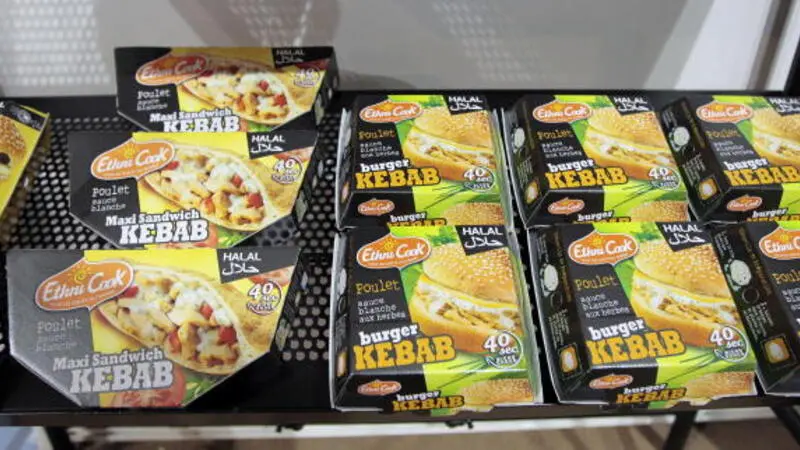Halal products and services are increasingly in demand. This demand is expected to generate new investments in this sector and to promote the export and trade of halal products between member countries of the Islamic Development Bank (IDB) and Muslim communities. This statement comes from Amer Bukvic, Acting Head of Products and Partnerships at the IDB.
“Muslims spend most of their spending on halal food products. The halal food sector was valued in 2021 at 1.27 billion dollars (1 dollar = 0.92 euro) and it should reach 1.67 billion dollars in 2025”, underlines Mr. Bukvic on the sidelines of the annual meeting. of the IDB held in Jeddah.
“To develop a sustainable halal industry in IDB member countries, it is essential to establish favorable ecosystems at the local level. These ecosystems include long-term strategies that promote the training of qualified personnel, the establishment of an institutional framework for standardization, accreditation and certification. These strategies also consist in developing awareness programs aimed at the various stakeholders and consumers, but also in using new technologies in order to increase the efficiency of the manufacture and distribution of halal products and improve the visibility and confidence of consumers. “, he adds.
Amer Bukvic says: “There are two big challenges ahead: financing the halal industry and effectively managing the supply chain for these products.”
Indeed, many IsDB member countries are striving to develop the halal economy and exploit the existing potential in the market.
Malaysia, the United Arab Emirates (UAE), Saudi Arabia and Turkey rank among the most committed countries in this area. They want to establish themselves as poles of attraction for the global trade in halal products.
Countries where Muslims are not in the majority, such as Thailand, Japan and South Korea, also hope to position themselves in the market for halal products as key players. For their part, Australia and Brazil are among the main suppliers of halal meat and poultry for countries in the Middle East.
Fahad al-Nuhait, CEO of the Halal Products Development Co. (HPDC), a company financed by the Public Investment Fund (PIF), says that his company’s objective is to invest in the products sector. halal seafood at all stages of production. It intends to take advantage of the sustainable integration opportunities that arise in Saudi Arabia and throughout the supply chain.
“Globally, we aspire to make the Kingdom a center of the halal industry, which promotes multilateral growth in targeted markets. By participating in the private sector forum, HPDC seeks to build partnerships with key players in the healthcare sector both inside and outside Saudi Arabia,” he said.
“This partnership demonstrates HPDC’s commitment to strengthening the Halal sector. It will also improve and develop the halal poultry products sector in the Kingdom.”
Hairol Ariffein Sahari, CEO of Halal Development Corp. (HDC), a Malaysian company, says: “The size of the global halal market is expected to reach $5 billion by 2030. These forecasts clearly show that stakeholders in halal products and countries IsDB members must collaborate for a common cause: to develop the halal industry in the world.”
HDC and IDB conducted a summary economic assessment of halal ecosystems to determine the following: IsDB countries’ readiness to manufacture and produce halal products as well as their ability to become self-sufficient, in particular in the production of products for the local market. Among these products are food, beverages, pharmaceuticals and personal care products, and many more.
An event titled “Harnessing the Potential of IsDB Member Countries to Strengthen the Booming Global Halal Industry” was organized as part of the Private Sector Forum on the sidelines of the IsDB Annual Meetings. Its objective is to highlight the role that the halal industry plays in the social and economic development of IsDB member countries and Muslim communities in non-member countries of the bank.
The forum also gave rise to two round tables titled “Promoting the Halal Industry through Investments” and “Innovations in the Halal Sector”.
Ahmed Osilan, board member and managing director of the Tanmiah company, said during the first panel discussion that “Saudi Arabia is at the heart of the Islamic world; it has a strong investment capacity and is accessible to more than 500 million consumers in neighboring markets”.
“Nearly 80% of halal products come from countries that are not necessarily halal. This situation motivates us to collaborate as players in the Halal market to provide quality products to Islamic countries – and to other countries, given the quality that Halal products offer to non-Muslims,” adds he.
The IDB and HPDC signed a memorandum of understanding at the end of the event. This agreement aims to highlight the opportunities offered by the halal sector in Saudi Arabia and in the member countries of the IDB. It has three main objectives: to locate the production sites of halal products in Saudi Arabia, to improve the capacities of the sector on a regional scale and to offer the export of halal products from the Kingdom to the rest of the world.
This article is originally published on arabnews.fr


